MercoPress. South Atlantic News Agency
Economy
-
Thursday, September 2nd 2021 - 08:54 UTC
Brazil's GDP suprisingly 0,1% in the red
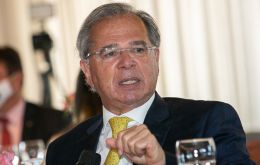
Brazil's Gross Domestic Product (GDP) contracted 0.1% in the 2nd quarter of 2021, the Brazilian Institute of Geography and Statistics (IBGE) reported Wednesday.
-
Thursday, September 2nd 2021 - 08:17 UTC
Argentina will not participate in the Conxemar fisheries fair in Vigo next month

Argentina will not be participating next October in this year's Conxemar 2021, one of the world's largest fisheries fairs that takes place in Vigo, Galicia. The information was made public in a brief release from the Argentine Federal Fisheries Council, CFP.
-
Wednesday, September 1st 2021 - 11:50 UTC
Argentina extends cap on meat exports, producers may halt all activity
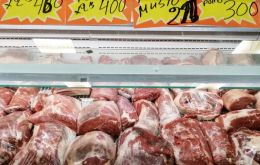
The Government of Argentina has extended the cap on meat exports until October 31, claiming it was because the measure had been effective in helping curb domestic prices.
-
Wednesday, September 1st 2021 - 09:54 UTC
Latin America and Caribbean expected to grow 5.9% in 2021, ECLAC says
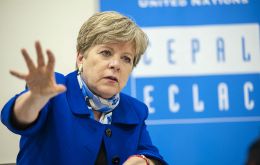
A new “Economic Study of Latin America and the Caribbean” report released Tuesday by the Economic Commission for Latin America and the Caribbean (ECLAC) raised its growth forecast for the region from 5.2% in July to 5.9%.
-
Wednesday, September 1st 2021 - 09:24 UTC
Inflation-15 in Brazil reached a twelve-month 9,30% in August

The anticipated inflation for the eighth month of the year in Brazil, which measures the second half of July and the first half of August, reached 0,89% according to the official stats office IBGE and is the highest since August 2002.
-
Wednesday, September 1st 2021 - 09:20 UTC
Chilean central bank surprises markets: basic interest rate doubled to 1,5%
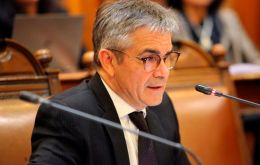
The Monetary Council of the Chilean central bank surprised markets on Monday by deciding to increase the basic interest rate 75 base points to 1,5%, the highest jump since August 2001. According to a bank release, the decision from the council was unanimous, and well beyond market expectations that had estimated an increase of 25 to 50 base points.
-
Wednesday, September 1st 2021 - 09:03 UTC
Bolivia's economy shows positive signs of recovery
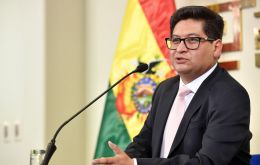
Bolivia's General Index of Economic Activity (IGAE) showed an 8.7% growth in the first semester of 2021, Economy and Public Finance Minister Marcelo Montenegro announced Tuesday.
-
Tuesday, August 31st 2021 - 09:50 UTC
Price of fuel goes down in Uruguay as of September

The Government of Uruguay Monday announced a small reduction in the price of fuel at pumps due to the use -for the first time- of the new Import Parity Price (PPI) adjustment formula devised by the current administration.
-
Tuesday, August 31st 2021 - 09:45 UTC
Mercosur meat exports facing shortage of containers and regular vessels
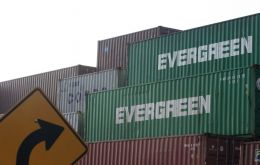
Disruptions of global maritime transport and major rivers struck by insufficient water flow to allow vessels to navigate are threatening beef exports Mercosur, including Brazil, Uruguay and Paraguay, when prices for food commodities are rising all over the world.
-
Tuesday, August 31st 2021 - 09:08 UTC
Brazil confident soybeans harvest will confirm it continues as the world's leader in the oilseed production

Brazil's National Supply Company, Conab, anticipated forecasts for the coming grains and oilseeds season 2021/22. The soy crop is expected to reach some 141,26 million tons or a 3.9% increase over the current harvest.
